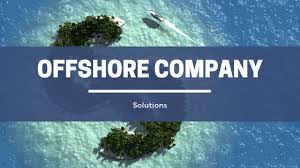Offshore Account
Offshore Account

The mainstream media often tends to demonize offshore investing, associating it with illegal business, money laundering and tax evasion.
Undoubtedly, there are cases where individuals take advantage of the loopholes in offshore investment norms to commit financial crimes. However, not all offshore investments are bad. In fact, there are some very beneficial aspects to take advantage of when investing in offshore investing.
Additionally, the secrecy surrounding offshore investing is no longer at the level it once was. Tax authorities around the world now share much more information than they used to and the level of transparency has increased over time.
It is important to learn what offshore investing really is and how it can be used legally to grow one’s wealth.
What is an Offshore account?
In order to invest in global markets and securities from an offshore jurisdiction, an investor needs an offshore investment account.
This account is a brokerage or trading account opened with an offshore bank. Typically, the offshore investment account is managed by a broker or investment manager on behalf of the investor.
What is special about this account is that it is located in an offshore or overseas location, which is often far from the investor’s home country. The location and jurisdiction of this bank is vital as it is the primary reason for opening an offshore investment account.
This location is a tax haven where capital gains from investments are tax free. Thus, by maintaining an offshore investment account, the investor can save significant amounts that he would otherwise have to pay in capital gains tax if investing in his home country.
Normally, the investor would open an offshore investment account in the name of an investment company that they have established. Such a regime is necessary to decouple the income generated by offshore investments from the individual investor.
From a legal and tax perspective, such a structure is usually considered advantageous.
There are different types of offshore accounts. An offshore investment account can be in the form of an offshore trading account with an offshore bank, investment company, offshore insurance company or brokerage firm.
If the offshore investment account is operated as an offshore brokerage account, it can be either a margin account or a cash account. Pension accounts and custody accounts can also be managed as investment accounts.
Advantages and disadvantages
1.Opening an offshore investment account has many benefits. First, you can invest in the securities of any global market you want.
Some economies are growing much faster than the economies of the US or European countries.
Why wouldn’t an investor want to participate in the structural growth of emerging markets? Earning 8%-12% is much more attractive than earning 3% or 4%.
With global markets, you can invest 24 hours a day. You can literally earn returns while you sleep.
2. You can diversify your portfolio by investing in assets outside of your home country. If something is going wrong in your home country’s economy, if there are political problems or trade wars, or if you feel that you might be the target of a government-sponsored asset seizure, then in all such cases it is better to do so Do allow a certain portion of your wealth to be shielded from volatility.
3. You can save significantly on taxes by investing through an offshore account. Tax haven countries like Singapore, Panama and Switzerland have no capital gains tax.
The laws are designed in such a way that, in addition to citizens of tax haven countries, foreigners can also enjoy this exemption from capital gains tax.
Holding citizenship or residency is not required to claim the tax benefit.
4. Often when investing offshore, an investment account is opened in a foreign currency. If you expect your local currency to depreciate or want to protect your assets against exchange rate fluctuations, investing offshore is a great option.
In addition, many of the offshore tax havens have strict regulations to protect client data confidentiality. This means that the offshore country will not disclose account holder information unless there are reasonable grounds for suspecting money laundering, drug trafficking, or similar crimes.
Confidentiality can be of great importance for certain legal transactions. For example, if a well-known investor is about to take a large position in a public company, that investor may want to keep the purchase confidential to prevent smaller investors from simply copying and inflating the price.
Offshore investments also have some disadvantages
There are other downsides to offshore investing as well. One of the most important is the increased complexity of managing the investment account. You usually need specialized advisors or lawyers to help you comply with complex tax and regulatory requirements.
In addition, there is a risk that you could become involved in illegal activity or in a fraudulent offshore investment. There are many fraudulent companies posing as legitimate offshore investment firms and scamming unsuspecting investors.
Another disadvantage is the risk of exchange rate fluctuations. When you invest in a foreign currency, you are exposed to fluctuations in that currency. This can result in losses if your home country currency appreciates against the currency in which you have invested.
Finally, there is the moral dilemma associated with offshore investing. Some people consider offshore investing ethically questionable as it allows the wealthy investors to avoid their tax obligations and hide money outside of the country where it was earned.
It is important to note that requirements may vary by offshore institution and country. Some countries have stricter rules and regulations than others.
After you have verified your identity and financial information, you will need to deposit the minimum balance into your new account. This amount may vary by institution and country.
Once your account is set up, you can start investing. You can invest in stocks, mutual funds, commodities and other investment vehicles.
It is important to understand local laws and regulations before investing in an offshore investment account. Some countries have restrictions and regulations that may restrict how you can invest your money.
It is also important to be aware of the tax laws and regulations of your home country and offshore country. Professional advice can be useful in this regard to ensure you are taking all necessary steps and complying with all regulations.
It is important to note that the availability of debit cards for offshore investment accounts depends on the specific offshore bank and not all banks offer this option. It is also important to understand that offshore investment accounts may be subject to certain restrictions, such as you may not be able to accept deposits from third parties or there may be limitations on the amount of withdrawals. Before opening an offshore investment account, you should research the terms thoroughly and make sure it is suitable for your needs.
Offshore Account Comparison Criteria
Fees – Offshore investment accounts incur certain costs charged by institutions for their services. These fees are usually a percentage of the total assets in the account or per trade. It is important to find out about any fees charged by the institution before deciding on an account.
Interest – Offshore investment accounts earn interest on deposits remaining in the account. Typically, interest rates are more competitive than what traditional banks offer.
Customer Support – Check the support and customer service level of all potential institutions. 24/7 support is desirable. Call the toll-free number and speak to the agents to get a feel for how friendly and professional the company is.
Research Tools – While not essential, it is important to have good research tools and investment information in order to make informed investment decisions. The more comprehensive and in-depth the content, the better the institution.
It is important to note that offshore investing can also involve risks. Some offshore locations may have less regulation and therefore could be considered riskier than domestic investments. There is also the possibility that important concepts such as sovereign guarantees or the right to compensation and appeals to regulators are not as strong as in your home country.
It is therefore advisable to consult an advisor who is familiar with all aspects of offshore investing before making any decision. According to Investopedia, more than half of the world’s wealth is held in offshore locations. Many high net worth individuals and companies around the world have invested in offshore accounts and when done legally and correctly, these investments can prove to be a smart move.
Travel to the offshore country where you wish to open an account is not required. You can easily open the account online from your home country by finding an offshore bank that can help you open the account. An investment account opened with an offshore bank may also offer additional facilities such as a checking account, online banking options, a bill payment option and the ability to borrow on margin.
Before opening an offshore investment account, it is also important to compare the fees and interest rates of different institutions. Good customer care and support is also important, especially if you are investing in another country. It also helps to have good research tools and investment information to make the best investment decisions.
——————
We’ve helped hundreds of people move their businesses overseas, legally reduce their taxes, and become dual citizens. We are focused on high-net-worth individuals and their families as well as corporations wishing to invest their offshore companies or even secure their wealth in offshore financial centers around the world. We will help you to find the best solution for setting up an offshore or onshore company. Another special area of our full-service consulting is the investment opportunity and solution in Europe, especially in the Balkans, Africa, Asia, UAE, the Caribbean and the Pacific.
If you are looking for it, please feel free to contact us. We create a holistic plan that serves your purpose.
TCME – Group worldwide is a leading professional International Business Investment and Advisory Firm for Foreign Economic Relations, with 17th. departments in different Countries around the world and the Headquarter in Malaysia.
GCI UNIT Worldwide, designs and implements customized, holistic strategies for successful investors and entrepreneurs to legally reduce their tax bills, diversify and protect their wealth, invest abroad, gain a second citizenship and live a freer life worldwide to lead.
YOUR CHANCE FOR A BETTER LIVE
GCI Unit Worldwide firm is a professional International Business Investment and Advisory Firm for Foreign Economic Relations. Our range of services includes:
• Offshore and Onshore Company Formation,
• executive Search,
• IT & Cyber Security Protection
• African Gold & Diamonds
• international Business & Management
• Citizenship & Residency
• Investments & Corporate Financing
• Mining and Trading
• Advisory for Foreign Economic Relationship
• Diplomatic Consultancy & Public Affairs
If you would like to discuss your internationalization and diversification plans, book a consulting session* or email us under: [email protected]
*A counseling session is a conversation about your portfolio and goals. It does not constitute legal, financial, tax or investment advice.
Department GCI – Unit Global Citizenship Investment (GCI Unit worldwide)
by TCME Worldwide Group – Global Investments –
Level 33, Ilham Tower, 8 Jalan Binjai,
Kuala Lumpur 50450, Malaysia
www.tcme.company
www.citizenship-news.com
Phone: +66 99091 8357 also for WhatsApp





